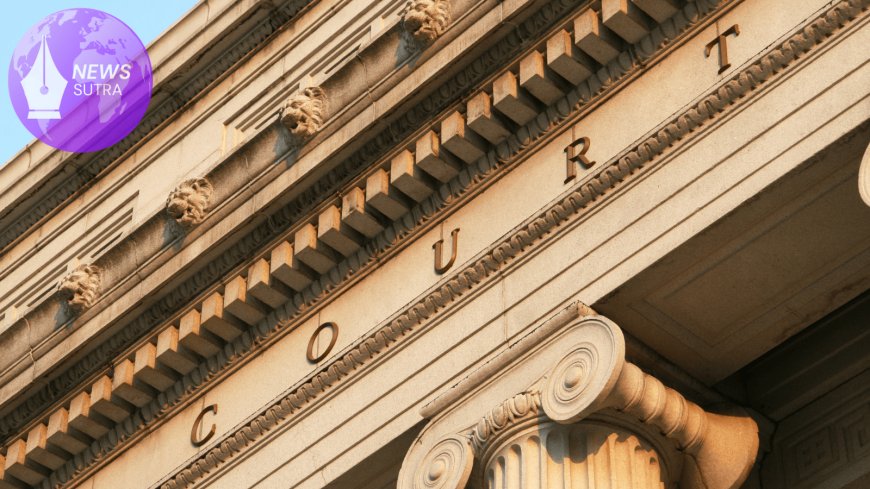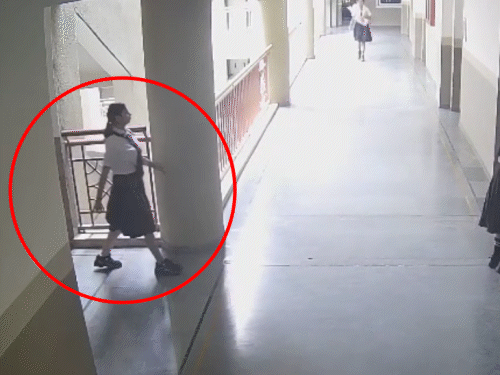Rights Group Urges Removal of ICJ Vice-President Amid Mounting Controversy
The Arab Organisation for Human Rights (UK) has urged the International Court of Justice to remove its Vice-President over alleged bias, raising questions about the court’s impartiality.

The International Court of Justice (ICJ), the world’s highest judicial body, has come under fresh scrutiny after a leading human rights organization called for the removal of its Vice-President. The Arab Organisation for Human Rights in the UK (AOHR UK) issued a strong statement urging ICJ judges to dismiss the court’s Vice-President over alleged bias and conduct that, they argue, undermines the credibility of international justice.
This unprecedented appeal highlights growing concerns about the impartiality of international judicial institutions and raises questions about how political pressures may influence global legal bodies tasked with upholding the rule of law.
The Call for Dismissal
The AOHR UK stated that the Vice-President of the ICJ has failed to uphold the principles of neutrality and independence that the court is meant to represent. In their view, recent rulings and public remarks demonstrated an alignment with political agendas rather than strict adherence to international law.
According to their press release, the group urged ICJ judges to “protect the integrity of the court” by taking the extraordinary step of removing their colleague from office. Such a move would be rare, as the ICJ traditionally operates on consensus and internal discipline rather than public dismissals.
For background, the International Court of Justice is the principal judicial organ of the United Nations, tasked with resolving disputes between states and giving advisory opinions on international legal questions. It is composed of 15 judges elected to nine-year terms by the UN General Assembly and Security Council.
Why This Matters
The ICJ has been thrust into the global spotlight in recent years due to high-profile cases, including disputes involving allegations of war crimes, occupation, and genocide. Critics argue that political pressures increasingly influence decisions at the court, raising doubts about its impartiality.
The AOHR UK’s intervention is significant because it comes at a time when the ICJ is adjudicating sensitive cases, some of which involve the Middle East and Europe. Any perception of bias could weaken the court’s legitimacy in the eyes of the global community.
Dr. Mohammed Jamil, director of AOHR UK, explained in a recent statement:
“The ICJ must remain a beacon of justice free from political influence. When its leadership is seen as compromised, the entire institution suffers a crisis of confidence.”
A History of Criticism
While the ICJ has generally been respected as a guardian of international law, it has not escaped criticism over the decades. Accusations of selective justice—where powerful states escape accountability while weaker nations are judged more harshly—have long circulated.
Scholars note that the ICJ faces inherent challenges: its judges are nominated by governments, and political considerations often play a role in their election. As such, critics argue, complete neutrality is nearly impossible.
The current controversy adds to a long list of grievances voiced by international NGOs and advocacy groups. Some point to rulings that appear to favor certain geopolitical blocs, while others highlight the lack of enforcement mechanisms that make ICJ judgments difficult to implement.
For a wider analysis of the ICJ’s role in world affairs, resources from the United Nations provide insight into its mandate and structure.
Reactions from the Legal Community
Legal scholars and international law practitioners are divided over the AOHR UK’s call. Some argue that it is necessary to hold ICJ officials accountable to maintain trust in the institution, while others fear that demands for dismissal may set a dangerous precedent.
Professor Anna Delgado, a specialist in international law at the University of Oxford, commented:
“While the concerns raised are serious, the ICJ is not designed to operate like a domestic court with impeachment mechanisms. Removing a Vice-President could destabilize the institution and politicize it further.”
Others, however, see the appeal as a wake-up call. “The ICJ cannot afford to ignore growing skepticism,” said Jamal El-Sayed, a Middle East legal analyst. “If they want to maintain credibility, they must address concerns about transparency and impartiality head-on.”
Political Undercurrents
The timing of the AOHR UK’s appeal is no coincidence. The ICJ is currently handling cases related to military operations in the Middle East, where questions of war crimes and occupation are central. Critics of the court’s Vice-President argue that his conduct has reflected partiality in favor of certain states accused of violations.
This has fueled fears that political alliances are influencing the court, undermining its ability to serve as a neutral arbiter. In regions already scarred by decades of conflict, such perceptions can erode confidence not just in the ICJ but in the entire framework of international law.
Broader Implications
If the ICJ were to seriously consider removing its Vice-President, it would mark an unprecedented moment in the court’s history. More likely, however, the judges may seek internal remedies—such as limiting the Vice-President’s role in specific cases or issuing clarifying statements about impartiality.
Either way, the controversy underscores the fragility of international institutions in an era of rising geopolitical tension. From the International Criminal Court (ICC) to the United Nations Human Rights Council, global judicial and rights bodies have faced accusations of bias and selective enforcement.
The AOHR UK’s appeal adds fuel to this broader debate: can international justice truly be impartial, or is it inevitably shaped by political realities?
The Importance of Transparency
One recurring theme in criticisms of the ICJ is the lack of transparency in its processes. Unlike some domestic courts, the ICJ does not provide detailed accounts of internal deliberations. For advocacy groups, this secrecy makes it difficult to assess whether judges are acting with independence.
Calls for reforms include:
-
Greater transparency in decision-making – Publishing more detailed reasoning behind rulings.
-
Independent oversight mechanisms – Allowing external review of potential conflicts of interest.
-
Stricter rules for judicial conduct – Ensuring that judges avoid public statements that may compromise impartiality.
By pushing for such reforms, rights groups believe that the ICJ could restore confidence even amid controversy.
What Comes Next
For now, the ICJ has not issued any public response to the AOHR UK’s demand. The judges of the court may discuss the issue internally, but given the rarity of such appeals, it is unclear how they will proceed.
Analysts expect the controversy to remain a topic of debate in legal and diplomatic circles, especially as the ICJ continues to hear sensitive cases. Regardless of the outcome, the episode has once again placed the credibility of international justice under the microscope.
As one legal expert summarized: “Even if the Vice-President remains in his post, the ICJ must now work harder to convince the world that it is truly independent.”
Conclusion
The call by the Arab Organisation for Human Rights (UK) to remove the Vice-President of the International Court of Justice is more than a dispute about one judge—it is a challenge to the very legitimacy of global justice. Whether or not the ICJ responds directly, the controversy highlights an urgent need for reform, transparency, and accountability.
In a time of rising global conflicts, the world is watching to see if the ICJ can rise above politics and remain what it was intended to be: an impartial guardian of international law.
What's Your Reaction?
 Like
0
Like
0
 Dislike
0
Dislike
0
 Love
0
Love
0
 Funny
0
Funny
0
 Angry
0
Angry
0
 Sad
0
Sad
0
 Wow
0
Wow
0






































































